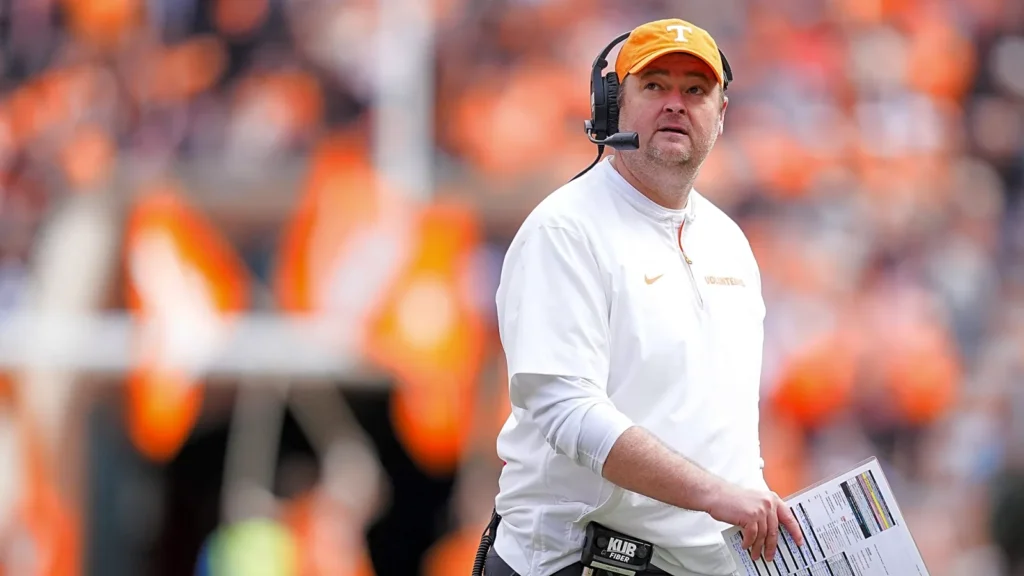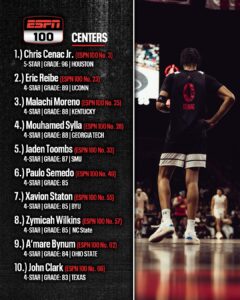
The Tennessee Volunteers, often referred to as the “Vols,” have long been one of the most storied programs in college football. From their rich history dating back to the early 20th century to their national championships, legendary coaches, and iconic players, Tennessee football has been a symbol of excellence. However, in recent years, it seems the Vols have endured the most disrespect the program has ever experienced.
This disrespect comes from a variety of sources: media outlets, rival fan bases, recruiting setbacks, and even their own internal struggles. The program that was once a powerhouse in the Southeastern Conference (SEC) now faces an uphill battle to regain its stature. But to understand the level of disrespect the Vols have endured, we must first look at the history of Tennessee football, the factors contributing to their decline, and the perceptions that have shaped their current situation.
A Historic Program
The University of Tennessee’s football program is a powerhouse with a legacy that includes six national championships (including titles in 1951 and 1998), numerous SEC championships, and a proud tradition that includes legendary coaches like Robert Neyland and Phillip Fulmer. Neyland’s tenure (1926-1934 and 1940-1940) established Tennessee as a consistent contender in college football, with Neyland’s “Seven Tenets” guiding the team’s success. The program continued to thrive under Fulmer, who led the Vols to their most recent national title in 1998.
In the 1990s, Tennessee was firmly entrenched among the elite college football programs in the country. Their battles with rival schools like Alabama, Florida, and Georgia, along with their success in bowl games and national rankings, made Tennessee one of the most respected programs in the nation.
However, as the 21st century began, Tennessee’s once-elite status started to slowly fade. The program went through a series of coaching changes, inconsistent performances, and challenges that led to a lack of the dominance they once enjoyed.
Decline and Disrespect
The most significant drop in Tennessee’s stature came after the departure of Phillip Fulmer. Fulmer, who had been the face of Tennessee football for more than 17 years, was dismissed after the 2008 season following a disappointing run that culminated in a 5-7 record. While Fulmer’s firing was a contentious decision, it signaled the beginning of the program’s struggles.
In the years since Fulmer’s departure, Tennessee football has seen a revolving door of head coaches. From Lane Kiffin (2009) to Derek Dooley (2010-2012), to Jim Chaney (2012), to Butch Jones (2013-2017), and finally to Jeremy Pruitt (2018-2020), the program seemed to struggle with finding the right leader. Each coaching tenure ended in disappointment, which only added to the growing disrespect for the Vols.
This instability at the top has led to inconsistency on the field. The Vols experienced multiple seasons of mediocrity and failed to make a significant impact on the national scene. What was once a program that could be counted on for double-digit wins and bowl appearances was now a team fighting for respectability. Tennessee’s once-vibrant fan base, which had long been known for its passionate support, began to lose faith. The Vols’ inability to compete at the highest level against rivals, as well as their struggles in the SEC, made it easy for critics to dismiss them as an afterthought.
This decline is reflected in Tennessee’s recruiting. The program once recruited some of the best high school talent in the nation, consistently landing top-tier players. However, as the program faltered, so did its ability to lure elite talent. The top recruits, particularly in the talent-rich state of Tennessee, began to favor schools like Alabama, Georgia, and Florida, which consistently fielded championship-contending teams.
This led to Tennessee’s inability to build depth in their roster, and with each passing season, the gap between the Vols and the SEC’s elite grew wider. Even when Tennessee was able to land solid recruits, they often struggled to develop those players into stars. As a result, Tennessee’s reputation as a program capable of developing top-tier talent began to erode.
Media Perception
The media has played a significant role in the disrespect Tennessee has faced in recent years. Once, Tennessee was a regular fixture in national conversations about college football powerhouses. However, as the Vols’ program faltered, the media’s focus shifted elsewhere. Coverage of Tennessee’s struggles became the norm, and the program was repeatedly painted as a fallen giant.
A critical turning point in Tennessee’s media coverage came after Lane Kiffin’s departure. Kiffin, who had only been the head coach for one season, left Knoxville under controversial circumstances to take the head job at USC. His departure angered many Tennessee fans, and his decision to leave abruptly only added fuel to the fire. The media did not shy away from criticizing the program for being unable to retain their young, charismatic coach, especially given the relative success Kiffin had in his first year.
But the media’s ridicule of Tennessee didn’t stop there. Even after the hiring of Butch Jones in 2013, the Vols’ inability to return to national prominence led to continued jokes and jabs from the media. Tennessee, once the gold standard in the SEC, was now viewed as a program in decline, unable to even challenge for the second-tier spot in the conference.
Rival Fans and Perception
Rival fan bases have also played a significant role in disrespecting Tennessee’s program. Schools like Alabama, Florida, and Georgia, who have been Tennessee’s biggest rivals over the years, have enjoyed relative success while the Vols have languished. As a result, those rival fan bases often mock and belittle Tennessee’s struggles. The rivalry between Tennessee and Alabama, which was once one of the most intense in college football, has become more one-sided, with Alabama winning 15 straight games against the Vols from 2006 to 2020.
Similarly, the rivalry with Florida has seen the Gators dominate Tennessee in recent years. Florida’s success under head coach Steve Spurrier and later Urban Meyer made Tennessee’s inability to compete with the Gators particularly glaring. Florida fans, in particular, have enjoyed mocking Tennessee for their struggles to reclaim any semblance of relevance in the SEC.
The result has been a perception of Tennessee as a program that is no longer capable of competing with its rivals. Fans across the country view Tennessee as a fallen giant, a team that once had it all but has now become a shell of its former self.
The Effect on Recruiting
One of the most significant impacts of Tennessee’s decline has been the loss of recruiting battles. Historically, Tennessee had a near-stranglehold on recruiting in the state. Top-tier players from Tennessee high schools would often stay in-state and play for the Vols. But as the program faltered, the allure of Tennessee football diminished. High-profile recruits began to look elsewhere, particularly to powerhouse programs like Alabama, Georgia, and Ohio State.
The decline in Tennessee’s recruiting ability has hurt the program’s ability to build a competitive roster. While Tennessee has continued to land some solid recruits, they are often ranked in the middle of the SEC or outside the national spotlight. It has become rare to see the Vols in the running for elite players, especially when they are competing against other SEC programs.
This lack of top-tier talent has compounded Tennessee’s struggles on the field. Recruiting is the lifeblood of college football programs, and without the ability to land top recruits, Tennessee has had to rely on lesser talent that simply can’t compete with the nation’s elite programs.
Tennessee’s Recent Rebound
Despite these challenges, there are signs that Tennessee may be on the rebound. In 2021, Tennessee hired Josh Heupel as head coach. Heupel, known for his high-powered offense, brought a new energy and excitement to Knoxville. His first season in charge, while a work in progress, showed promise as the Vols showed flashes of competitiveness. Under Heupel, Tennessee has begun to recruit better players and show more potential on the field. Though the road ahead remains challenging, there is optimism that Tennessee can return to relevance.
Yet even with these positive signs, the Vols still face an uphill battle to reclaim their status among the elite programs in college football. The disrespect the program has faced over the past decade is deeply ingrained in the public perception of Tennessee football. Rebuilding this program will require sustained success on the field, the development of talent, and a return to recruiting dominance. It will take more than just a few successful seasons—it will require a cultural shift that re-establishes Tennessee’s place in the college football hierarchy.
The Tennessee Volunteers have endured a period of disrespect that, in many ways, represents the most challenging era in the program’s storied history. From coaching instability to media ridicule, to the loss of top-tier recruits, Tennessee football has struggled to maintain its once-elite status. The Vols have found themselves in the unfortunate position of being a fallen giant, a program that was once among the best but now finds itself fighting to regain its relevance.
However, despite these challenges, Tennessee has the resources, history, and fan base to once again rise to prominence. The disrespect may have been deserved at times, but it has also served as motivation for those involved in the program to prove the doubters wrong. Whether or not Tennessee can return to national prominence remains to be seen, but the potential is there, and the Vols will continue to fight to reclaim their place in college football’s elite.
As the program moves forward, one thing is certain: the Tennessee Volunteers will not accept the disrespect they have endured as their legacy. They will fight to prove that they are more than just a fallen giant—they are a program with the heart, history, and potential to reclaim their place at the top.





